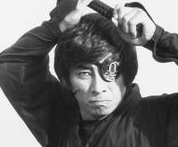|
Tender Bender posted:Ok I just read up on the Robert Blake trial, and what the hell? How do you attempt to hire multiple people to kill your wife, have them refuse, then go ahead and do it anyway in something that can't even be disguised as an accident? Like what do you think will be the outcome of that situation? For normal people, guilty. For celebrities, not guilty due to reasonable doubt no matter how implausible it is.
|
|
|
|

|
| # ? May 23, 2024 06:21 |
|
quote:Inland Empire has one of my favorite monologues (the last line is great): Typed out like that the monologue could almost be a Burroughs routine. I can find a straightforward plot in Mulholland Drive which I posted above, and I can get about three quarters of the way there with Lost Highway, but I'm not sure if Inland Empire supports that kind of reading. Not that it has to, mind you. Here's what I got from my first viewing years ago. At first Nikki is acting in a remake of a film which was never finished because the leads were murdered. Nikki begins to lose her identity in the role she's playing. It turns out the film she's acting in is haunted by a phantom being which is able to distort time and reality around the various adaptations of the film and the people acting in them, way back to the story's origin in Poland. Nikki becomes trapped by the phantom when the set she's on becomes a real house. Other people are trapped in the same dreamlike existence as well, including the original actress in the role. Nikki confronts the phantom and kills it, and it seems like everyone trapped has been freed. But in the end that is left ambiguous, Nikki is back home but nothing has gone back to normal (and maybe it never was). This explanation leaves out a lot of the film so it could use some expansion. I'm willing to accept that trying to rationalize such a dreamlike work might be missing the point, but maybe someone else can take a crack at it? Lord Krangdar fucked around with this message at 02:14 on Sep 20, 2012 |
|
|
|
Tender Bender posted:Ok I just read up on the Robert Blake trial, and what the hell? How do you attempt to hire multiple people to kill your wife, have them refuse, then go ahead and do it anyway in something that can't even be disguised as an accident? Like what do you think will be the outcome of that situation? Well, she'll be dead, so mission accomplished?
|
|
|
|
Tender Bender posted:Ok I just read up on the Robert Blake trial, and what the hell? How do you attempt to hire multiple people to kill your wife, have them refuse, then go ahead and do it anyway in something that can't even be disguised as an accident? Like what do you think will be the outcome of that situation? Reliance on the stupidity of a jury that thinks forensic evidence is the end-all-be-all?
|
|
|
|
Snak posted:I'll start by saying I'm not really fan a of David Lynch. I lost most of my interest in figuring out Mulholland Dr. when I learned that it was originally supposed to be the pilot for a series. To me that means anything that doesn't really make sense was intended to be explained later, and searching for reasons in the film is pointless. Of course Lynch acted like the movie was a riddle and that there were clues, but I think that was basically bullshit and he was just trying to salvage the fact that he wasn't able to completely turn a pilot into a self contained film. I have no doubt that if it had been conceived as a self contained film from the beginning it would have been more coherent, because even if I don't like him, he is talented. He definitely is invested in loving with you. He's said (though I can't find a source for this, so I may be misremembering) that it's important to realize that Lost Highway takes place in the same universe as Twin Peaks. But obviously that's crazy and has nothing to do with anything.
|
|
|
|
How does one/do I differentiate between what a director and cinematographer do? I don't really understand the difference in the jobs when it comes to visuals.
|
|
|
|
mastershakeman posted:How does one/do I differentiate between what a director and cinematographer do? I don't really understand the difference in the jobs when it comes to visuals. Take this with a grain of salt, but AFAIK the director might know what he wants to get across or even have an idea of what shot he wants, but the cinematographer is the one who makes it work visually and technically. The director doesn't necessarily worry about all the technical aspects, like what lens to use when for example.
|
|
|
|
I watched Cruising on netflix after seeing the title come up in the Killer Joe thread, and I'm trying to make sense of some of the ending pieces. So the fingerprint and the knife pretty much tie up the schitzophrenic daddy-issues guy for the back stabbing murders. But when Al Pacino confronts him under the bridge, Pacino stabs him with a large chef’s knife. Is this supposed to be the same knife that the neighbor’s boyfriend/roommate pulled on him earlier? Also, I’m not really sure how to read the final scene, with Pacino looking at the mirror/camera and then the cut to the boat. (Pacino’s character is the one dismembering dudes? Or is it just a reference back to the opening scenes?)
|
|
|
|
Lord Krangdar posted:Stuff This is great, thanks. mastershakeman posted:How does one/do I differentiate between what a director and cinematographer do? I don't really understand the difference in the jobs when it comes to visuals. Well, the director is the director and I'm assuming you know that generally he or she has most of the control. But if you hire a talented cinematographer or DP, or a specific one, it goes a long way to achieving a vision. Generally the cinematographer controls the camera and lighting crews and chooses things like lens, filters etc. This changes from film to film depending on how much control the director allows the cinematographer to have over the films 'look'. It's fairly easy to differentiate the jobs, but the level of control is definitely different from film to film, depending on the director and the ideas behind hiring a certain DP. I imagine someone like the Coen's who often work with the same people give them instructions and then let them do what they do fairly freely, whereas it will most likely not be the same in a big budget Hollywood production that isn't too actively concerned with 'artistic merit' or whatever you'd like to call it. That's a very simple and basic way to put it and I'm sure somebody else can come in and help more.
|
|
|
|
Specifically, I watched Persona last night, and was curious on how much of the lighting, shadow, and occlusion of characters were Bergman's work versus whoever his cinematographer was. I assume the placement of each person was Bergman, but the lighting might not have been all him, and I'm just wondering how much 'credit' he gets for it. On the other hand, I've seen Chris Doyle's work with different directors (Yimou, Kar-wai) and it's really clear right away that Doyle's the cinematographer because of how rich his colors always seem to be.
|
|
|
|
Honestly, it's on a case-by-case basis, just like with the relationship between directors and editors or actors. Some directors demand everything be in accordance to their vision, some don't care and expect something workmanlike, some work together and collaborate, or the director gives guidelines that are open to interpretation from the cinematographer. The latter tends to specifically look for directors who will either provide their own interpretation and style or who have an understand of the look they like, like how the Coens like to work with Roger Deakins. If you haven't already, watch the documentary Cameraman (currently on Netflix streaming) for an example of how directors usually have a certain vague notion of what they want, but a cinematographer's understanding of light, colour and framing can really help shape it. Of course, it also helps continue blur the lines between the two roles as well.
|
|
|
|
kuddles posted:If you haven't already, watch the documentary Cameraman (currently on Netflix streaming) for an example of how directors usually have a certain vague notion of what they want, but a cinematographer's understanding of light, colour and framing can really help shape it. Of course, it also helps continue blur the lines between the two roles as well. Thanks for this recommendation, I've been looking for a documentary like this for a while.
|
|
|
|
Does the cinematographer generally choose the film stock to use? I have some other questions about the physical medium of motion picture film: - Are movies generally shot on the same film type or does it change based on the scene? Do they switch to a faster film for dark scenes, for example? - The word 'negative' is always thrown around when talking about movies, but is positive film ever used? I could see it being advantageous if you're just going to scan it anyway for post-production. - Is motion picture film identical to still film? For example, can I go buy a 120 roll of whatever they shot Samsara on?
|
|
|
|
kuddles posted:Honestly, it's on a case-by-case basis, just like with the relationship between directors and editors or actors. Some directors demand everything be in accordance to their vision, some don't care and expect something workmanlike, some work together and collaborate, or the director gives guidelines that are open to interpretation from the cinematographer. The latter tends to specifically look for directors who will either provide their own interpretation and style or who have an understand of the look they like, like how the Coens like to work with Roger Deakins. Thanks, I haven't watched that doc yet but I'm sure it'll help explain a lot.
|
|
|
|
In Eyes Wide Shut, I get that Victor says to Bill that the girl who OD'ed and the sacrificial woman were one and the same. But were they played by different actresses or am I just misreading the IMDb credits?
|
|
|
|
david_a posted:Does the cinematographer generally choose the film stock to use?
|
|
|
|
Regarding the Mulholland Dr. discussion from a few days ago. I've found ClydeUmney's post from its MOTM thread a few years back to be helpful. http://forums.somethingawful.com/showthread.php?threadid=3352893&userid=54633 Tender Bender posted:Ok I just read up on the Robert Blake trial, and what the hell? How do you attempt to hire multiple people to kill your wife, have them refuse, then go ahead and do it anyway in something that can't even be disguised as an accident? Like what do you think will be the outcome of that situation? If you have the opportunity I highly recommend watching Blake's interview from a few months back on the Piers Morgan show. I can't find the words to describe it. https://www.youtube.com/watch?v=gEZFmWR2R20
|
|
|
|
david_a posted:Does the cinematographer generally choose the film stock to use? It's usually the same film throughout for purposes of consistency, though there are exceptions- The Dark Knight had some scenes shot in IMax with the appropriate film but the entire movie wasn't shot that way. As for who chooses it, the director and cinematographer discuss these things in preproduction, but the studio also has a say- they may say you'll be using digital video because it's more cost effective, or it has to be widescreen (i.e. 2.35:1), and this is sometimes one of the things a director negotiates for depending on just how much the studio thinks it's important.
|
|
|
|
Does anyone know why Battleship's budget was so drat high? There weren't really any major stars in it, and movies that are much more effects-heavy, such as Prometheus cost much less to make.
|
|
|
|
Well it definitely had a ridiculously aggressive marketing campaign, so that's probably part of it.
|
|
|
|
CopywrightMMXI posted:Does anyone know why Battleship's budget was so drat high? There weren't really any major stars in it, and movies that are much more effects-heavy, such as Prometheus cost much less to make. There are differences in cost depending on what country you shoot in, as that takes into account everything from tax incentives to the costs of additional electricity and temporary housing. Also, I'm not certain of the reasoning behind this and could only speculate, but I know that filming at sea is much more expensive. It's why Waterworld went hugely over budget and the BioShock movie keeps getting put on hold. Finally, the majority of Prometheus was able to be shot on sound stages, while the majority of Battleship was shot on location, so that greatly affects costs, especially if any of those sound stages was already owned by the studio. kuddles fucked around with this message at 13:20 on Sep 27, 2012 |
|
|
|
Aren't movies that take place in the water typically pretty expensive in general, especially action movies?
|
|
|
|
That's why Ang Lee was so reluctant to make The Life Of Pi, because it combined the three most difficult, time-consuming things to shoot: water, children, and animals.
|
|
|
|
Magic Hate Ball posted:That's why Ang Lee was so reluctant to make The Life Of Pi, because it combined the three most difficult, time-consuming things to shoot: water, children, and animals. Based on the preview, two out of three of those things are CGI, granted that can be its own pain in the rear end.
|
|
|
|
Rounders 1998 - At the end, Damon goes against Malkovich with 10K and doubles it to 20K. He wins the final game which should double him again to 40K, yet he ends up with 60K. Where did the extra 20K come from?
|
|
|
|
SkunkDuster posted:Rounders 1998 - At the end, Damon goes against Malkovich with 10K and doubles it to 20K. He wins the final game which should double him again to 40K, yet he ends up with 60K. Where did the extra 20K come from? I haven't seen it in a while, but I thought he didn't raise him from 10K to 20K but added 20K to the 10K bet, meaning they each bet 30K, for a 60K pot.
|
|
|
|
Magic Hate Ball posted:That's why Ang Lee was so reluctant to make The Life Of Pi, because it combined the three most difficult, time-consuming things to shoot: water, children, and animals. I'm really good friends with the 1st Assistant Editor on Life of Pi, and I turned down a spot on his crew (twice, in fact) because the timing wasn't right for me (a long story.) I was waiting for that phone call for years, actually, and was always under the impression that the Ang was really gung-ho about the project. The story I kept getting was that Fox didn't want to spend the kind of money Ang thought it needed (among other hold ups) but if you've read otherwise I'd love to see the quote. Your assertion certainly makes sense on the face of things!
|
|
|
|
Five Cent Deposit posted:I'm really good friends with the 1st Assistant Editor on Life of Pi, and I turned down a spot on his crew (twice, in fact) because the timing wasn't right for me (a long story.) I was waiting for that phone call for years, actually, and was always under the impression that the Ang was really gung-ho about the project. The story I kept getting was that Fox didn't want to spend the kind of money Ang thought it needed (among other hold ups) but if you've read otherwise I'd love to see the quote. Your assertion certainly makes sense on the face of things! The two are not necessarily inconsistent: he could be keen on the film but feel that it needed a certain budget, and he wouldn't do it unless he got the money to do it properly.
|
|
|
|
That's what I heard. That Ang Lee was just as hesitant to make the film as the 800 directors Fox had asked before him, and basically put a line in the sand regarding how much money he needed to do the film "right" in his eyes.
|
|
|
|
^^ Absolutely! I'm just looking for a quote or an interview or something. Basically I was following the project casually for awhile because my wife and I loved the book, but the reporting was always vague. When I became friends with the 1st and asked him about it (and expressed interest in working on it) back in '08 or '09 he told me it had been dead in the water (har har) but might someday still happen. From that point onward I stopped reading about it and just got occasional updates from him until late Dec '10 when he called me and said "it's finally happening, can you be ready in two weeks to go to Taiwan and India for 5 months?" And for better or worse, I said no. He called again in May of '11 with another offer but again it didn't work out. Since then we've gotten together or talked a few times but we've never talked about the reasons it took so long to get going - mostly we've compared notes on workflow issues and other boring poo poo like that.
|
|
|
|
is there a Taken 2 thread? Should there be? It's kind of a miss, was interested to see what others were thinking.
|
|
|
|
PDMChubby posted:You're right; I was thinking of this, which I associated with the hands thing because it's a pretty clear influence on the bulging wall in A Nightmare on Elm Street. That scene from The Haunting is also referenced in Evil Dead II.
|
|
|
|
OK, does anyone know what quote this is from? Google fails me: "We're gonna get you a lawyer. A good lawyer. A JEW lawyer." I swear it's from like Casino or something, but my boss and I say it all the time and can't remember what it's from.
|
|
|
|
EdsTeioh posted:OK, does anyone know what quote this is from? Google fails me: IIRC that is Carlito's Way.
|
|
|
|
EdsTeioh posted:OK, does anyone know what quote this is from? Google fails me: You could be misremembering a quote from Snatch where Avi, the American mob boss, tells his muscle that they're going to bring him to a good Jew doctor while they're driving in a car. I think his nose is broken or his hand is busted, its been a while since I've seen the movie.
|
|
|
|
What movie has the quote "Policing is only supposed to be an easy job when you're living in a police state." (something like that) I want to say Touch of Evil, but I'm not sure.
|
|
|
|
ONE YEAR LATER posted:You could be misremembering a quote from Snatch where Avi, the American mob boss, tells his muscle that they're going to bring him to a good Jew doctor while they're driving in a car. I think his nose is broken or his hand is busted, its been a while since I've seen the movie. I don't think so. I only saw this movie once with a sound system that was so lovely I couldn't understand a single word.
|
|
|
|
escape artist posted:What movie has the quote "Policing is only supposed to be an easy job when you're living in a police state." (something like that)
|
|
|
|
What is meant when someone is referred to as a "character actor"? I mean, unless you only do bio-pics, all roles are "characters". And I don't think I've ever seen the title applied to women/actresses.
|
|
|
|

|
| # ? May 23, 2024 06:21 |
|
CzarChasm posted:What is meant when someone is referred to as a "character actor"? I mean, unless you only do bio-pics, all roles are "characters". And I don't think I've ever seen the title applied to women/actresses. Someone who plays mostly quirky side-roles is a character actor. And you're right that it isn't applied to women as much, but I'd definitely call Beth Grant a character actor for example.
|
|
|








































